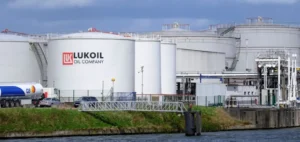A bomb attack in the Saravena area of the Arauca department in Colombia has led to the immediate suspension of oil pumping on the Caño Limón-Coveñas pipeline. Cenit Transporte y Logística de Hidrocarburos, the company managing the network and a direct subsidiary of the state-owned oil company Ecopetrol, confirmed the incident, emphasizing that no injuries or casualties have been reported thus far. The pipeline, nearly 800 kilometers long, plays a major role by connecting oil fields in the Arauca basin to the Colombian Caribbean coast, thereby facilitating exports to international markets. Following this interruption, Cenit immediately activated its emergency response plan to contain potential environmental damage and swiftly assess the necessary repairs.
Rapid Response by Authorities
Colombian authorities quickly dispatched security and maintenance teams to the site to secure a perimeter and launch a detailed investigation into the exact cause of the explosion. Although no official claim of responsibility has been made so far, initial suspicions primarily point towards guerrilla groups active in this sensitive region, particularly the National Liberation Army (Ejército de Liberación Nacional, ELN) or dissident factions of the Revolutionary Armed Forces of Colombia (Fuerzas Armadas Revolucionarias de Colombia, FARC). Both groups have historically targeted Colombian energy infrastructure through similar acts of sabotage intended to disrupt the national economy. Repeated attacks on this pipeline have marked recent decades, highlighting the persistent vulnerability of the Colombian energy sector to internal security threats.
Immediate Economic Consequences
The Caño Limón-Coveñas pipeline has a daily transportation capacity approaching 210,000 barrels, making this infrastructure particularly strategic for Ecopetrol, Colombia’s leading oil producer. Any significant disruption could quickly lead to reduced export volumes and negatively affect revenues generated by the state-owned company. In the short term, a prolonged pipeline shutdown might also force Ecopetrol to seek alternative routes to transport crude oil, thereby increasing its logistical costs. International markets, particularly sensitive to such recurring incidents, are closely monitoring the evolving situation, which could, in the short term, influence risk perceptions related to investments in Colombia’s oil sector.
Persistent Security Risks
This incident underscores the crucial importance of ongoing efforts by the Colombian government to secure sensitive areas around the country’s key energy infrastructures. Despite regular security operations conducted by the Colombian military, attacks using improvised explosive devices (IEDs) continue to represent a constant challenge. Oil companies operating in the Arauca region thus remain exposed to persistent threats, which could have a long-term impact on their operations and profitability. Given this situation, the industry will likely have to consider additional measures to effectively protect its assets and ensure the operational continuity essential for regional and national economic stability.






















